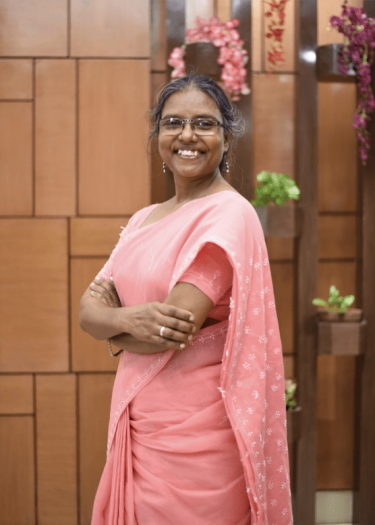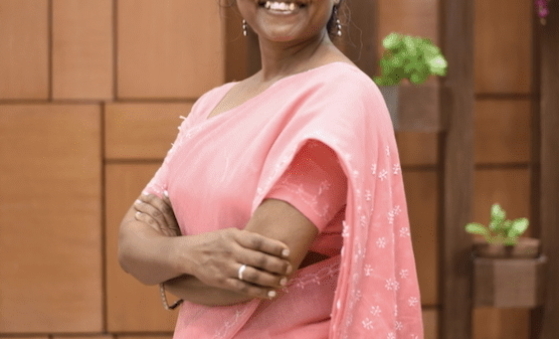
The United Nations Educational, Scientific and Cultural Organisation (UNESCO) has appointed two pioneering Indigenous scholars as co-chairs of a groundbreaking initiative to strengthen Indigenous rights and knowledge systems worldwide. Dr Sonajharia Minz from India’s Oraon tribal community and Dr Amy Parent from Canada’s Nisga’a Nation will jointly lead the UNESCO Chair in Transforming Indigenous Knowledge Research Governance and Rematriation.
The appointment marks a historic collaboration between Simon Fraser University in Vancouver and Jawaharlal Nehru University in New Delhi. Over the next four years, the co-chairs will focus on uplifting Indigenous communities across Canada, India and beyond by strengthening their rights to self-determination and research governance.
Dr Minz, who belongs to the Oraon tribe from Jharkhand, brings extensive expertise in computer science, artificial intelligence and machine learning to the role. Currently serving as Professor of Computer Science at Jawaharlal Nehru University, she previously served as Vice Chancellor at Sido Kanhu Murmu University in Jharkhand. When appointed to that role in 2020, church leaders and activists welcomed her selection as an inspiration for tribal women in education. Her research areas include spatial data analytics and geospatial informatics using artificial intelligence.
The Oraon community, India’s second-largest tribe in Jharkhand after the Santal tribe, comprises approximately 3.6 million people across several Indian states, with 1.7 million residing in Jharkhand alone. Dr Minz’s mother tongue is Kurukh, and she traces her lineage through the Minz (fish) clan, whilst her mother belonged to the Khess (paddy) clan and her husband to the Ekka (turtle) clan.
Dr Minz pursued her higher education at Women’s Christian College in Chennai and completed her master’s degree at Madras Christian College before transitioning to computer science at JNU in 1986. Her father, Lutheran Bishop Emeritus Nirmal Minz, founded Gossner College in Ranchi and won the Bhasha Samman award in 2016 for his contribution to developing Kurukh, the Dravidian language spoken by the Oraon people.
Speaking about the urgent need for language preservation, Dr Minz emphasised the critical situation facing Indigenous languages globally. “Time is running out – we are on the brink of losing Indigenous languages around the world, and language is more than a mere communication tool,” she stated. “Indigenous languages are a repository of culture, knowledge, and knowledge systems. They are awaiting urgent attention for revitalisation, which means that we are all endowed with the responsibility to preserve these worldviews for our future generations.”
Dr Parent highlighted the significance of Indigenous women leading such international initiatives. “Dr Sonajharia Minz and I carry this joint appointment not only with deep honour, but with a profound sense of responsibility – to our Nations, our Ancestors, and the generations to come,” she said. “We are committed to bringing forward the strength of our Nations and the integrity of our knowledge systems into spaces and places where they have long been excluded.”
The UNESCO Chair represents an international academic position established at universities or research institutions to promote global collaboration, knowledge exchange and capacity-building in areas aligned with UNESCO’s priorities. These include education, cultural heritage, sustainability and human rights. The programme supports over 1,000 chairs across more than 125 countries.
Indigenous Knowledge Research Governance (IKRG) refers to self-determined, Indigenous-led processes, policies and structures that guide research involving Indigenous peoples, their rights, knowledge, languages and lands. This approach is deeply rooted in Indigenous principles of respect, reciprocity and responsibility towards Mother Earth and all living beings, whilst challenging gender violence, oppression and research colonialism.
The co-chairs will undertake extensive outreach and relationship-building with local, national and international Indigenous communities, organisations and nations. Their work will support Indigenous-led processes for returning cultural belongings, developing research governance models and co-creating policy pathways for Indigenous language revitalisation.
The initiative will also contribute to designing decentralised digital infrastructure and advancing Indigenous-governed approaches to artificial intelligence and data sovereignty. Through mentorship and active example, the co-chairs aim to strengthen Indigenous matriarchal values of promoting, protecting, preserving and passing on Indigenous knowledge.
Dr Minz currently serves as co-principal investigator on an international project examining gender-oriented adaptive cross-learning climate change adaptation and disaster risk resilience, funded by the Asia Pacific Network in 2023. She remains an active scholar, writer and speaker on matters of gender justice, social justice, tribal languages and culture.
The new UNESCO Chair will join existing Indigenous representatives in the network, working alongside the UNESCO Chair in the Transmission of First Peoples’ Culture to Foster Well-Being and Empowerment at the University of Quebec at Chicoutimi, and the UNESCO Chair in Indigenous Protected and Conserved Areas at Vancouver Island University.
Political leaders in Jharkhand have celebrated the appointment, with JMM Central Spokesperson Kunal Sarangi describing it as a “super proud moment for the entire nation and especially for Jharkhand” in a social media post congratulating Dr Minz.
A public launch of the appointment will take place during the BC First Nations Women’s, 2SLGBTQQIA+, Self-Determination and Rematriation Research Governance Summit in October 2025, on Coast Salish Territories.




